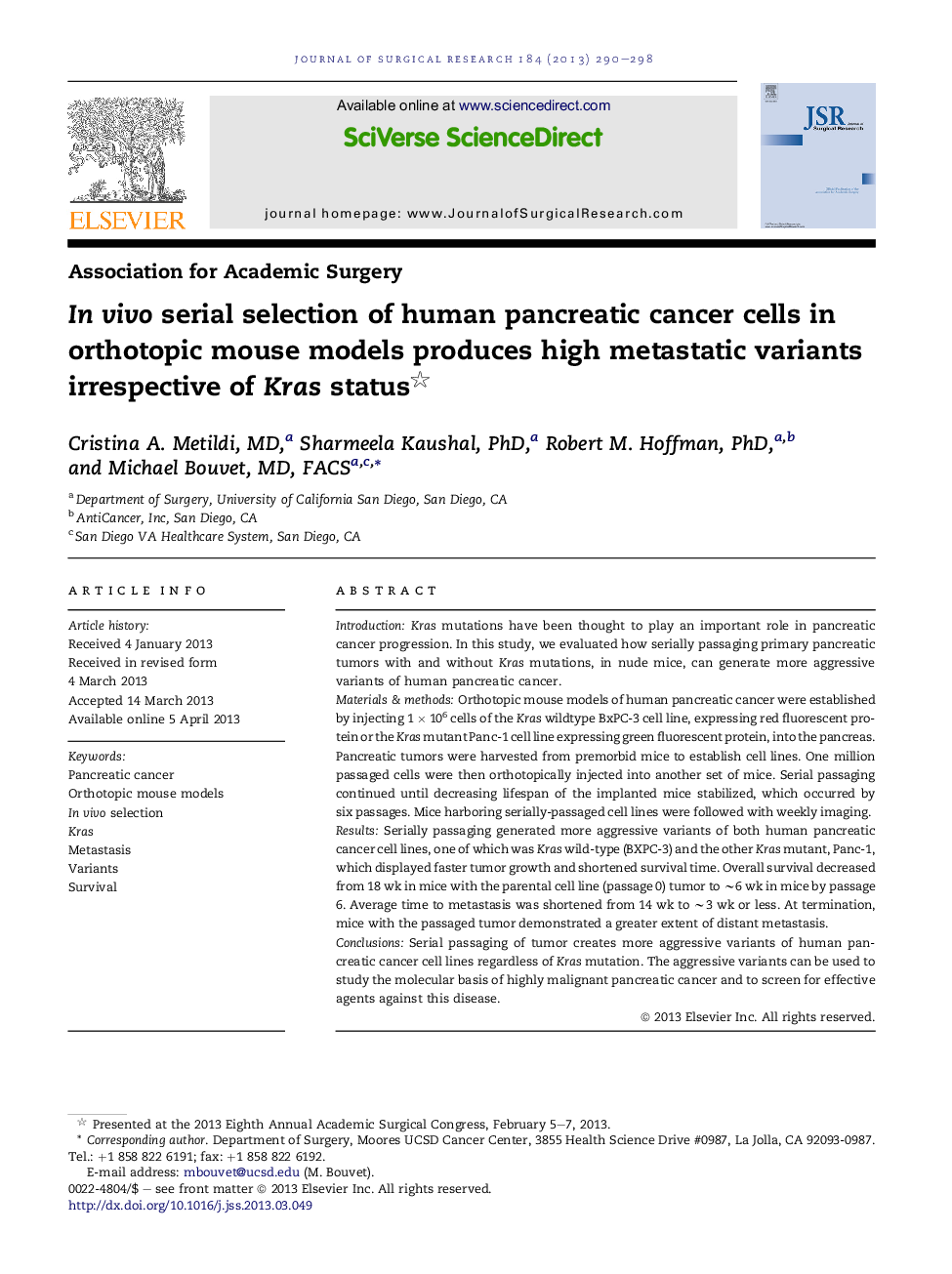| Article ID | Journal | Published Year | Pages | File Type |
|---|---|---|---|---|
| 4300607 | Journal of Surgical Research | 2013 | 9 Pages |
IntroductionKras mutations have been thought to play an important role in pancreatic cancer progression. In this study, we evaluated how serially passaging primary pancreatic tumors with and without Kras mutations, in nude mice, can generate more aggressive variants of human pancreatic cancer.Materials & methodsOrthotopic mouse models of human pancreatic cancer were established by injecting 1 × 106 cells of the Kras wildtype BxPC-3 cell line, expressing red fluorescent protein or the Kras mutant Panc-1 cell line expressing green fluorescent protein, into the pancreas. Pancreatic tumors were harvested from premorbid mice to establish cell lines. One million passaged cells were then orthotopically injected into another set of mice. Serial passaging continued until decreasing lifespan of the implanted mice stabilized, which occurred by six passages. Mice harboring serially-passaged cell lines were followed with weekly imaging.ResultsSerially passaging generated more aggressive variants of both human pancreatic cancer cell lines, one of which was Kras wild-type (BXPC-3) and the other Kras mutant, Panc-1, which displayed faster tumor growth and shortened survival time. Overall survival decreased from 18 wk in mice with the parental cell line (passage 0) tumor to ∼6 wk in mice by passage 6. Average time to metastasis was shortened from 14 wk to ∼3 wk or less. At termination, mice with the passaged tumor demonstrated a greater extent of distant metastasis.ConclusionsSerial passaging of tumor creates more aggressive variants of human pancreatic cancer cell lines regardless of Kras mutation. The aggressive variants can be used to study the molecular basis of highly malignant pancreatic cancer and to screen for effective agents against this disease.
